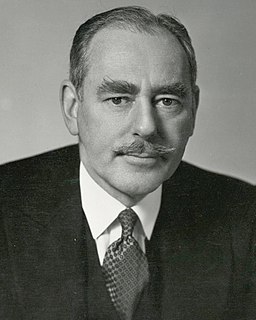Top 1085 Soviet Quotes & Sayings - Page 18
Explore popular Soviet quotes.
Last updated on April 21, 2025.
Most of the people buying the Soviet paraphernalia were Americans and West Europeans. All would be sickened by the thought of wearing a swastika. None objected, however, to wearing the hammer and sickle on a T-shirt or a hat. It was a minor observation, but sometimes, it is through just such minor observations that a cultural mood is best observed. For here, the lesson could not have been clearer: while the symbol of one mass murder fills us with horror, the symbol of another mass murder makes us laugh.
It was life under the Soviet system - we were struggling with every big problem. Publicly, my parents had to queue up to buy food, but were able to live secret lives in their private rooms. With the TV set in the living room, we were able to see Western pop culture -a different reality from what we were living. For me, it was like two different universes existed at the same time, and we got used to being in these parallel universes.
The list of American grievances is long: Pakistan developed nuclear weapons while promising the United States that it would not; the United States helped arm and train Mujahideen against the Soviets during the 1980s, but Pakistan chose to keep these militants well armed and sufficiently funded even after the Soviet withdrawal in 1989; and, from the American perspective, Pakistan's crackdown on terrorist groups, particularly after 9/11, has been halfhearted at best.
If we [Americans] are a strong people, a united people, why do we always have to hear how great we are? What is this self-love? Where does this come from? It got worse, because after the war we thought we'd won it. That's the first myth. Frankly, Russia won it. The Soviet Union sacrificed far greater form than anyone else to win that war. Secondly, we had the atomic bomb. We should not have dropped it on Japan. We did as an example to the Soviets, not to defeat Japan and to save American lives. These are myths that we explode with a lot of research early on.
I have information about things that our government has lied to us about. I know. For example, to say that since the fall of the Soviet Union we ceased all of our intimate relationship with Bin Laden and the Taliban - those things can be proven as lies, very easily, based on the information they classified in my case, because we did carry very intimate relationship with these people, and it involves Central Asia, all the way up to September 11.
In all countries, in all centuries, the primary reason for government to set up schools is to undermine the politically weak by convincing their children that the leaders are good and their policies are wise. The core is religious intolerance. The sides simply change between the Atheists, Catholics, Protestants, Unitarians, etc., depending whether you are talking about the Soviet Union, the Austro-Hungarian Empire, America, etc. A common second reason is to prepare the boys to go to war and the girls to cheer them on.
This was the first time we had two ex-Soviet Cosmonauts in Houston. A lot of us, including me, viewed it with some skepticism, because I grew up during the Cold War, so I had been hit with all this propaganda all along that their stuff wasn't that good, it wasn't that safe and we were so much better. What I found out later was that their space stuff was very good and good enough that I was certainly comfortable flying on their equipment. So, it was kind of a revelation of sorts as the years went by and I think it underscores the importance right now of international cooperation.
The Bolshevik revolution was a counter-revolution. Its first moves were to destroy and eliminate every socialist tendency that had developed in the pre-revolutionary period. Their goal was as they said; it wasn't a big secret. They regarded the Soviet Union as sort a backwater. They were orthodox Marxists, expecting a revolution in Germany. They moved toward what they themselves called "state capitalism," then they moved on to Stalinism. They called it democracy and called it socialism. The one claim was as ludicrous as the other.
In Moscow, dim and green under the summer rain, columns of armour were waiting in the side-roads off the long avenue from Vnukovo airport. Tanks from the Taman Division stood beneath the dripping trees around Moscow University with their field kitchens and command trucks. This was not a new sight to me: the Soviet tanks had rested like that beneath the trees of the parks in Prague, late in another August twenty-three years before. Now they had invaded and crushed one more country -- their own.
I have left the obvious, essential fact to this point, namely, that it is the Russian Armies who have done the main work in tearing the guts out of the German army. In the air and on the oceans we could maintain our place, but there was no force in the world which could have been called into being, except after several more years, that would have been able to maul and break the German army unless it had been subjected to the terrible slaughter and manhandling that has fallen to it through the strength of the Russian Soviet Armies.
Thus these three amendments to the Constitution [13th, 14th, 15th] were ratified while the ten Southern states were under martial law, and "had no law at all." The Force Acts, the four Reconstruction Acts, and the Civil Rights Act were all passed by Congress while the Southern states were not allowed to hold free elections, and all voters were under close supervision by federal troops. Even Soviet Russia has never staged such mockeries of the election procedures.
The median family of four ... paid $4,722 in federal taxes last year. That's enough to pay for a new curtain for the secretary of commerce's office, to bribe a farmer not to plant 38 acres with corn ... seven weeks of salary for a Customs man assigned to save us from the terror of high-quality, low priced foreign TV sets, or the subsidy on 6,000 bushels of wheat to prop up the Soviet regime. Surely civilization would collapse without such essential services.
The thing that should most concern us is a shift in American foreign policy. We have had a bipartisan belief in American foreign policy based on the post-World War II institutions that believed in democratic global world, which Russia and the Soviet Union was often seen as hostile to. And most Republicans and Democrats have always basically believed in this world order. Donald Trump and Vladimir Putin and maybe Marine Le Pen do not agree with this basic structure of the world.
In speaking of the capitalists who strive only for profit, only to get rich, I do not want to say that these are the most worthless people capable of doing nothing else. Many of them undoubtedly possess great organising talent, which I would not dream of denying. We Soviet people learn a lot from the capitalists. But if you mean people who are prepared to reconstruct the world, of course you will not be able to find them in the ranks of those who faithfully serve the cause of profit. ..The capitalist is riveted in profit and nothing can tear him away from it.
Russians want to drill in the Arctic. Rex Tillerson has negotiated a multibillion-dollar deal with Exxon to do that drilling. They can't get the equipment, the supplies and all that they need until the sanctions are lifted. They want Donald Trump; not only will he support lifting those sanctions, he also will turn a blind eye to the expansion that Putin is trying to do. He does not care about them having invade Crimea and does not care whether or not this egotistical maniac, Vladimir Putin, is attempting to reunite the whole Soviet Union.
The Prime Minister, shortly after she came into office, received a sobriquet as the 'Iron Lady'. It arose in the context of remarks which she made about defence against the Soviet Union and its allies; but there was no reason to suppose that the Right Honourable Lady did not welcome and, indeed, take pride in that description. In the next week or two this House, the nation and the Right Honourable Lady herself, will learn of what metal she is made.
In fact, we haven't ever really recalibrated our foreign policy commitments since the end of the Cold War. We still have alliances throughout Asia and across Europe that were devised to tame the Soviet Union, which, last time I checked, ceased to exist more than 20 years ago. Today, of course, we have a commitment to go to nuclear war with Russia in case Russia invades Latvia. To me, that's complete and utter nonsense. There ought to be a reconsideration of our posture in every region of the world.
In the past, foreign intervention was obviously a major problem. Foreign domination, or if not domination, interference. But that has ended. There is no foreign domination; there is minimal foreign interference. The Cold War has ended. The Soviet Union no longer exists. The United States is showing minimal and diminishing interest in the Muslim world. They now have to confront their own problems. The old excuses are gone. The old justifications are gone and therefore the anger of people is turning increasingly against their own rulers.
How can there be democracy if the leadership in the United States and Britain don't uphold the values which my father's generation fought the Nazis, millions of people gave their lives against the Soviet Union's regime, didn't they? Because of what? Democracy. And what democracy meant. No torture, no camps, no detention forever or without trial, without charges. In solitary confinement. Those techniques which are not just alleged, they have actually been written about by the FBI. I don't think it's being far left - I hope that I'm wrong to consider that it's far left to uphold the rule of law.
The cry of "Make America Great Again" reflects accurately that, after the fall of the Soviet Union, the sole superpower status of the United States is coming to an end. For the first time since the second World War, we are not the sole dominant economy in the world. In large part this is because of the success of policies followed by the United States to create an environment, a peaceful period in history in which economies could grow and countries could benefit.
Once the Eastern Bloc collapsed, what I call 'historical spontaneity' prevailed and the countries that were subject to Soviet control naturally gravitated to the West. That's where they sought their security; I don't think there was a way to avoid that. If we tried to exclude them, we would have today not one Europe, we would have three Europes: one in the West, one in the middle and one in the East, and the middle would be insecure and a tempting target. The insecurity felt [today] by Eastern Europe would be replicated on a much larger and more consequential scale.
There are forces more powerful and pervasive than the apparatus of war. You may chain a man, but you cannot chain his mind. You may enslave him, but you will not conquer his spirit. In every decade since the war Soviet leaders have been reminded that their pitiless ideology only survives because it is maintained by force. But the day will come when the anger and frustration of the people is so great that force cannot contain it. Then the edifice cracks; the mortar crumbles; one day, liberty will dawn on the other side of the wall.
The initiative of the Five Year Plan and of the accelerated collectivization belongs entirely to the Left Opposition, in uninterrupted and sharp struggles with the Stalinists. Not having the possibility of occupying myself here with long historical researches, I will limit myself to a single illustration. The Dnieprostroy is considered with right as the highest achievement of Soviet industrialization. Yet [Joseph] Stalin and his followers ([Clim] Voroshilov and others) a few months before the beginning of the work were decided opponents of the Dnieprostroy plan.
Except for the small revolutionary groups which exist in all countries, the whole world was determined upon preventing revolution in Spain. In particular the Communist Party, with Soviet Russia behind it, had thrown its whole weight against the revolution. It was the Communist thesis that revolution at this stage would be fatal and that what was to be aimed at in Spain was not workers' control, but bourgeois democracy. It hardly needs pointing out why 'liberal' capitalist opinion took the same line.
I do think, from the other side, that George W. ush was somewhat of an innocent in his thinking about what Ronald Reagan did during the Cold War and by bringing democracy to Eastern Europe. I think he believed that he could do the same thing by bringing democracy - or Midland, Texas, really - to the Middle East. I truly think he felt it was possible. "I want to do for the Middle East what Reagan did for the Soviet Union."
John Kerry and the other Democratic leaders are on the wrong side of history, as they were during the Reagan presidency. If they had won the day, and Reagan had failed, the Soviet Union would still exist, as would all the harm and suffering it unleashed, and American security would be far weaker as a result. And if they win this election thanks to a promise to undo the Reagan-Bush Doctrine, those cheering loudest will be the most evil-loving among us.
All this [Soviet labor camp for political prisoners] brings about one marked change in your physical appearance; by the end of your first year, you will have what are known as 'zek's eyes.' The look in a zek's eyes is impossible to describe, but once encountered, it is never forgotten. When you emerge, your friends, embracing you, will exclaim: 'Your eyes! Your eyes have changed!' And not one of your tormentors will be able to bear your scrutiny. They will turn away from it, like beaten dogs.
It's a little hard to avoid putting both war and politics in, in that they both come into the activity, but on their own. My basic idea is to do a great love film set in the hell of 1942. At that moment, hell was Leningrad. Underneath all this, of course, is a film about dissension between the two most important countries in the world, the United States and the Soviet Union. I think it is a must at this point to talk about cooperation instead of the rancor and hatred and competition between nations.
Much of America is now in need of an equivalent of Mrs. Thatcher's privatization program in 1980s Britain, or post-Soviet Eastern Europe's economic liberalization in the early Nineties. It's hard to close down government bodies, but it should be possible to sell them off. And a side benefit to outsourcing the Bureau of Government Agencies and the Agency of Government Bureaus is that you'd also be privatizing public-sector unions, which are the biggest and most direct assault on freedom, civic integrity, and fiscal solvency.
One substitute for the disappearing Evil Empire (The Soviet Union) has been the threat of drug traffickers from Latin America. In early September 1989, a major government-media blitz was launched by the President. That month the AP wires carried more stories about drugs than about Latin America, Asia, the Middle East and Africa combined. If you looked at television, every news program had a big section on how drugs were destroying our society, becoming the greatest threat to our existence, etc.
Singing 'Blowin' in the Wind' all the places we've been, it takes on a different meaning everywhere. When you sing the line, 'How many years can a people exist, before they're allowed to be free?' in a prison yard for political prisoners in El Salvador; if you have sung it to a group of union organizers, who have all been in jail, in South Korea; if you've sung to Jews in the Soviet Union who have been refused exit visas; if you've sung it with Bishop Tutu protesting apartheid, the song breathes, it lives, it has a contemporary currency.
The Islamists had control over territory that was about half the size of the Federal Republic of Germany. For years, we have been putting the lives of our troops on the line, we have taken huge losses and the Europeans cut the budget? If money is more important than the lives of our children, what else is this than the usual arrogance and superficiality? And where is all this terror coming from? It is a result of mistakes the West committed in Pakistan and Afghanistan in the 1980s, when they armed the Islamic rebels against the Soviet troops.
I refer to the misunderstanding of Soviet Russia as an aggressive power, militaristically and ideologically bent upon world domination 'seeing', to quote a recent speech of the British Prime Minister, 'the rest of the world as its rightful fiefdom.' How any rational person, viewing objectively the history of the last thirty-five years, could entertain this 'international misunderstanding' challenges, if it does not defeat, comprehension. The notion has no basis in fact... If Russia is bent on world conquest, she has been remarkably slothful and remarkably unsuccessful.
In the years since The Life and Extraordinary Adventures of Private Ivan Chonkin, Voinovich has sharpened his satire, and Monumental Propaganda is a novel that slashes and rips -- but not on every page. He expands his narrative to accommodate shrewd philosophy and inventive portraiture, a very amusing disquisition on Soviet latrines and a number of outlandish plot developments. In his translation, Andrew Bromfield deftly shifts his tone and tools as required, remaining true to Voinovich's Vonnegut-like playfulness and appreciation of the absurd.
We have got to accept Big Government for the duration-for neither an offensive nor a defensive war can be waged, given our present government skills, except through the instrument of a totalitarian bureaucracy within our shores. … And if they deem Soviet power a menace to our freedom (as I happen to), they will have to support large armies and air forces, atomic energy, central intelligence, war production boards, and the attendant centralization of power in Washington-even with Truman at the reins of it all.
An old Russian woman goes into Kremlin, gets an audience with Mikhail Gorbachev and says, In America anyone can go to the White House, walk up to Reagan's desk and say, 'I don't like the way you are running the country.' Gorbachev replied, You can do the same thing in the Soviet Union. You can go into the Kremlin, walk up to my desk and say 'I don't like the way Reagan is running his country.'
Yet we slink about like whipped curs:;... our self-abasement principally takes the form of subservience to the United States:;... we are under no necessity to participate in the American nightmare of a Soviet monster barely held at bay in all quarters of the globe by an inconceivable nuclear armament and by political intervention everywhere from Poland to Cambodia. It is the Americans who need us in order to act out their crazy scenario... We simply do not need to go chasing up and down after the vagaries of the next ignoramus to become President of the United States.
I might have arguments with the size of Reagan's military buildup, but given the Soviet invasion of Afghanistan, staying ahead of the Soviets militarily seemed a sensible thing to do. Pride in our country, respect for our armed services, a healthy appreciation for the dangers beyond our borders, an insistence that there was no easy equivalence between East and West--in all this I had no quarrel with Reagan. And when the Berlin Wall came tumbling down, I had to give the old man his due, even if I never gave him my vote.
I guess the prime example is in North America there's a thing where if there's no opportunity to move forward with the puck, then a [hockey] player is told to dump the puck into the other zone. Just give up the puck and dump it in. Give it to the other team. And to the Soviet mentality in coaching, it just doesn't make any sense. If you're a skilled player, why are you going to give the puck away to the other team? Just give it away, right?
The fanatical Communist refuses to believe any unfavorable report or evidence about Russia, nor will he be disillusioned by seeing with his own eyes the cruel misery inside the Soviet promised land. It is the true believer's ability to "shut his eyes and stop his ears" to facts that do not deserve to be either seen or heard which is the source of his unequaled fortitude and constancy. He cannot be frightened by danger, nor disheartened by obstacles, nor baffled by contradictions because he denies their existence.
Dictatorship nations are outlaws. Any free nation had the right to invade Nazi Germany and, today, has the right to invade Soviet Russia, Cuba, or any other slave pen. Whether a free nation chooses to do so or not is a matter of its own self-interest, not of respect for the nonexistent 'rights' of gang rulers. It is not a free nation's duty to liberate other nations at the price of self-sacrifice, but a free nation has the right to do it, when and if it so chooses.
The American financial and military commitment really only kicks in with Korea. Not that Korea was the real game for the Americans; their real fear was that this was just the prelude to a second Korea in Germany. We now know from the Soviet archives that the last thing Stalin was going to do was start a war in Central Europe. The Americans didn't know that, and it was the fear that he might which transformed NATO from a sort of shell game into a real military alliance. That total commitment basically transformed the Marshal Plan into military aid.
Remind me: who was the greater mass murderer, Stalin or Hitler? Well, Stalin is thought to have been responsible for about 50 million deaths, and Hitler for a mere 25 million. What Hitler did in his concentration camps was equalled if not exceeded in foulness by the Soviet gulags, forced starvation and pogroms. What makes the achievements of communist Russia so special and different, that you can simper around in a CCCP T-shirt, while anyone demented enough to wear anything commemorating the Third Reich would be speedily banged away under the 1986 Public Order Act?
World War Two was a world war in space. It spread from Europe to Japan, to the Soviet Union, etc. World War Two was quite different from World War One which was geographically limited to Europe. But in the case of the Gulf War, we are dealing with a war which is extremely local in space, but global in time, since it is the first 'live' war.
During the '80s, those you would call the young philosophers of France, such as Bernard-Henri Lévy and [André ] Gluxman, pointed out that Camus had said things no one wanted to hear in the political arena. They said it was [Albert] Camus who was right, not those who had slid under the influence of Sartre, that is to say an unconditional devotion to Communism as seen in the Soviet Union. And ever since then the evaluation of Camus has continued to modify up until today
The Soviet Union came apart along ethnic lines. The most important factor in this breakup was the disinclination of Slavic Ukraine to continue under a regime dominated by Slavic Russia. Yugoslavia came apart also, beginning with a brutal clash between Serbia and Croatia, here again 'nations' with only the smallest differences in genealogy; with, indeed, practically a common language. Ethnic conflict does not require great differences; small will do.
Like apples in a barrel infected by one rotten one, the corruption of Greece would infect Iran and all to the east. It would also carry infection to Africa through Asia Minor and Egypt, and to Europe through Italy and France, already threatened by the strongest domestic Communist parties in Western Europe. The Soviet Union was playing one of the greatest gambles in history at minimal cost. It did not need to will all the possibilities. Even one or two offered immense gains. We and we alone were in a position to break up the play.
Now we are talking about concluding a free trade agreement between the Eurasian Economic Council, recently established in the post-Soviet space, and China. A similar agreement was concluded a short time ago with Vietnam. Then, we will coordinate, at least we are ready to do this, the Chinese concept of the Silk Road Economic Belt with our newly-created regional organisation. So, do you understand how diverse, multi-faceted and deep Russian-Chinese ties have become over the last couple of decades? And we resolved the border issue.
I think Martin Luther King would always keep track of collective insurgencies among poor and working people. He was concerned about the treatment of Jews in the Soviet Union, for example. He would have closely followed the Arab Spring. And certainly he would be very critical of the massive surveillance state that has emerged in America in the last five to 10 years. He would have approved of the movements trying to gain some accountability in U.S. foreign policy, such as drones being (used) on innocent people. I think he would march against drones.
In short, Israel is the measure of our failings and our incompetence. We have waited for a great leader for years, but none came; we have waited for a mighty military victory, but we were defeated roundly; we have waited for outside powers (the United States or, in its time, the Soviet Union), but none came to our aid. The one thing we have not tried in all seriousness has been to rely on OURSELVES: until we do that with a full commitment to success there is no chance that we can advance towards self-determination and freedom from aggression.
It's important to remember that World War II was experienced very much as a continuity in that sense. Most of World War II in most of Europe wasn't a war; it was an occupation. The war was at the beginning and the end, except in Germany and the Soviet Union, and even there really only at the end. So the rest of time it's an occupation, which in some ways was experienced as an extension of the interwar period. World War II was simply an extreme form, in a whole new key, of the disruption of normal life that began in 1914.
This is the free enterprise system. The only place in the world that I can recall where companies never failed was the old Soviet Union. This is what investors do in free enterprise and capitalism system. [...[ And, yes, free enterprise system can be cruel. But the problem with this administration is that small businesses are the one who had suffered the most, the kind that need investors, the kinds that don't need the hundreds of pages, thousands of pages of regulations that continue to plague them and have them hold back on the hiring investment.
Here I was in Estonia, doing a concert for 5,000 people, and not many people know the song My Way - Gorbachev in the 80s, My Way had just become a famous song, and [Mikhail] Gorbachev in a satirical, kind of cynical manner coined the term the Sinatra Doctrine and My Way was the song because the Baltic states in the Warsaw Pact wanted to go their own way and secede from the Soviet Union, so joking he says," Yeah, we've got the Sinatra Doctrine now."
Imagine a room awash in gasoline, and there are two implacable enemies in that room. One of them has nine thousand matches. The other has seven thousand matches. Each of them is concerned about who's ahead, who's stronger. Well that's the kind of situation we are actually in. The amount of weapons that are available to the United States and the Soviet Union are so bloated, so grossly in excess of what's needed to dissuade the other, that if it weren't so tragic, it would be laughable. What is necessary is to reduce the matches and to clean up the gasoline.
If it is bin Laden, he's a very intelligent guy. He's been planning his war for a long time. I remember the last time I met him in 1997 in Afghanistan. And bin Laden said to me "From this mountain, Mr. Robert, upon which you are sitting, we beat the Russian army and helped break the Soviet Union. And I pray to God that he allows us to turn America into a shadow of itself." When I saw the pictures of New York without the World Trade Center, New York looked like a shadow of itself.
And lastly, Chairman Khrushchev has compared the United States to a worn-out runner living on its past performance, and stated that the Soviet Union would out-produce the United States by 1970. Without wishing to trade hyperbole with the Chairman, I do suggest that he reminds me of the tiger hunter who has picked a place on the wall to hang the tiger's skin long before he his caught the tiger. This tiger has other ideas.
The clearer and deeper the public opinion of the world, in the first instance the opinion of the working masses, will understand the contradictions and the difficulties of the socialist development of an isolated country, the higher will it appreciate the results achieved. The less it identifies the fundamental methods of Socialism with the zigzags and errors of the Soviet bureaucracy, the less will be the danger that, by the inevitable revelation of these errors and of their consequences, the authority, not only of the present ruling group, but of the workers' State itself, may decline.
You cannot do anything without rousing the masses to action. A plenary meeting of the Soviet must be called to decide on mass searches in Petrograd and the goods stations. To carry out
these searches, each factory and company must form contingents, not on a voluntary basis: it must be the duty of everyone to take part in these searches under the threat of being deprived of
his bread card. We can't expect to get anywhere unless we resort to terrorism: speculators must be shot on the spot. Moreover, bandits must be dealt with just as resolutely: they must be
shot on the spot.
We know what we want. To us it means nothing that there is a Soviet Union somewhere in the world, for the sake of whose peace and tranquility the workers of Germany and China were sacrificed to Fascist barbarians by Stalin. We want revolution here in Spain, right now, not maybe after the next European war. We are giving Hitler and Mussolini far more worry with our revolution than the whole Red Army of Russia. We are setting an example to the German and Italian working class on how to deal with Fascism.
One answer to why public interest in men's tennis has been on the wane in recent years is an essential and unpretty thugishness about the power-baseline style that's become dominant on the tour. Watch Agassi closely sometime...he's amazingly absent of finesse, with movements that look more like a heavy-metal musician's than an athlete's...what a top PBer really resembles is film of the old Soviet Union putting down a rebellion. It's awesome, but brutally so, with a grinding, faceless quality about its power that renders that power curiously dull and empty.






















































